- SHOWA Medical University
- Research
- Research Facilities
Research Facilities
Various facilities essential for research are assembled at SHOWA Medical University. They meet the needs of life science research which increasingly requires various types of high technology equipment.SHOWA Medical University Clinical Research Institute for Clinical Pharmacology and Therapeutics
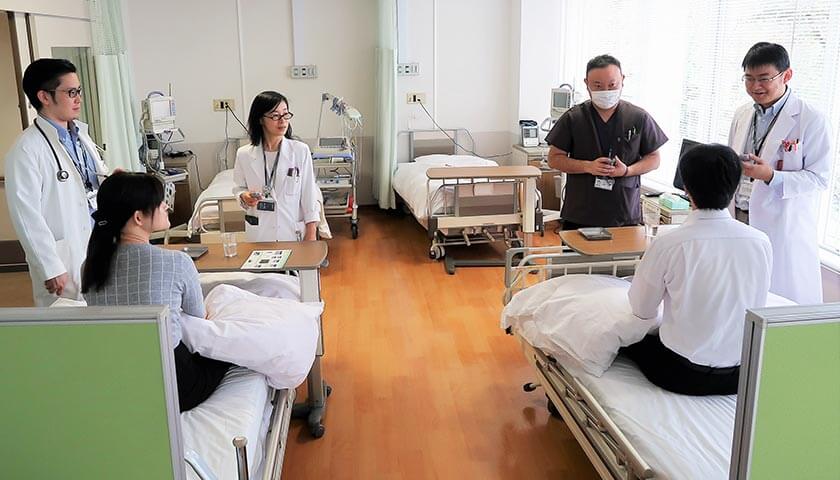
We, SHOWA Medical University Clinical Research Institute for Clinical Pharmacology and Therapeutics, strive to provide the proper knowledge on clinical studies to the general public.
- Clinical Research Institute (CRI) conducts early phase studies (PhaseⅠ→POC、POM). Afterwards, we support to conduct the follow-up clinical trials (Phase Ⅱ、Ⅲ) of the medical candidates at all SHOWA Medical University Hospitals. CRI contributes to the speed and improvement of the quality of the clinical study, thereby eliminating the drug lag in our country, through collaboration of academy and the industry in these fields.
- CRI also supports clinical pharmacological research based on the physician’s clinical questions.
- CRI teaches the importance of drug development and clinical research. CRI also focuses on the creation of the intellectual property, which is related to the improvement of the physician’s evaluations.
- CRI cultivates human resources who contribute to the actual education and research in the schools of medicine, dentistry, pharmacy, and nursing and rehabilitation sciences as a global medical university.
SHOWA Medical University Medical Institute of Developmental Disabilities Research
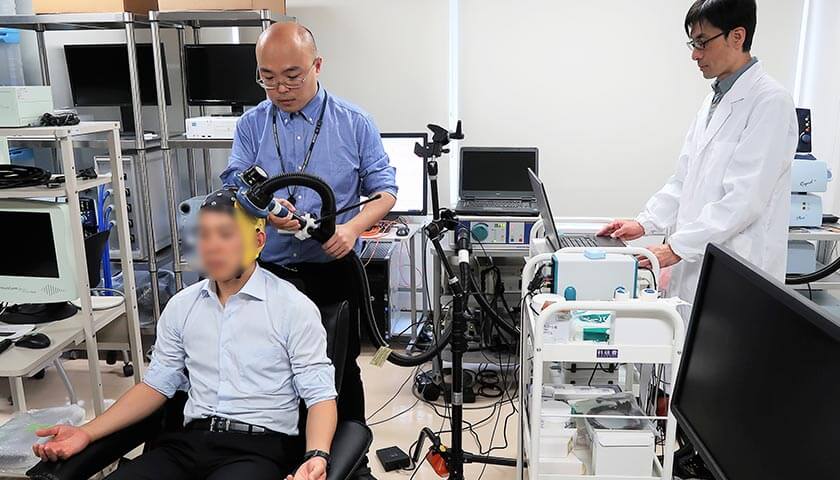
The Institute focuses on the adult autism spectrum and attention deficit hyperactivity disorder. To elucidate the features of the brain that are thought to be the cause of developmental disorders, we conduct clinical research using the latest technologies such as the 3Tesla MRI system and eye tracker. In addition, as a joint-use research center of the Ministry of Education, Culture, Sports, Science and Technology, we conduct a wide range of research including not only medicine and brain science but also education and the humanities/sociology. The Institute has created an environment that welcomes the participation of researchers from across the country. The Institute aims to develop not only specialized researchers but also graduate students to advance medical research on developmental disabilities and develop the next generation of researchers.
SHOWA Medical University Advanced Cancer Translational Research Institute
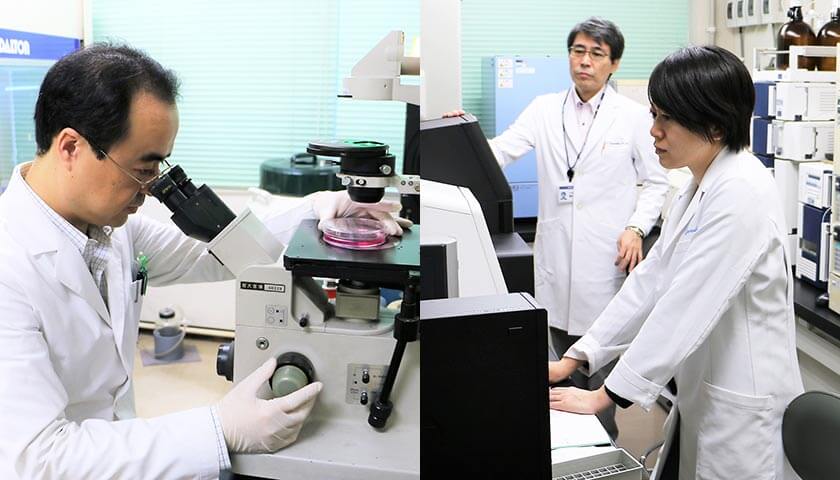
SHOWA Medical University Advanced Cancer Translational Research Institute (ACT) will enable the rapid development of new drugs that will allow us to treat cancer better than before. We are here to set the new standard of patient-centered cancer treatment by innovative, clinically relevant translational and clinical research. By taking a transdisciplinary approach, our collaborative effort with pharmaceutical companies, diagnostics companies, academic clinical researchers and academic basic science will result in groundbreaking science and advancement. Furthermore, we will focus on educating the next generation of oncology leaders who can contribute to the science advancement in Japan.
Our mission is to eradicate the suffering from cancer through translational research and we conduct preclinical and clinical studies here. We utilize preclinical models to solve clinical questions or explore more efficacious treatment strategies. And we also propose translation clinical protocols in order to find molecular characteristics or changes associated with efficacy of certain treatments. Also, early phase clinical trials like dose finding or combination of drugs or modalities with proof of concept are within our scope. ACT teams up with alliances of clinical investigators at SHOWA Medical University and affiliated institutes. So, our ideas and findings are intended to shuttle between bench and bedside.
A multi-disciplinary team including pharmacists, pathologists, statisticians and physicians are all together and discuss about projects at ACT. We are all on the same page to promote innovative treatment or diagnostic strategies.
An advantage of studying at ACT is that you can learn principle of basic science as well as applied science, which means clinical research at ACT. Lectures who specialize in different areas are available and support you to conduct translational studies. You can experience borderless research between basic and clinical.
SHOWA Medical University Research Institute for Sport and Exercise Sciences
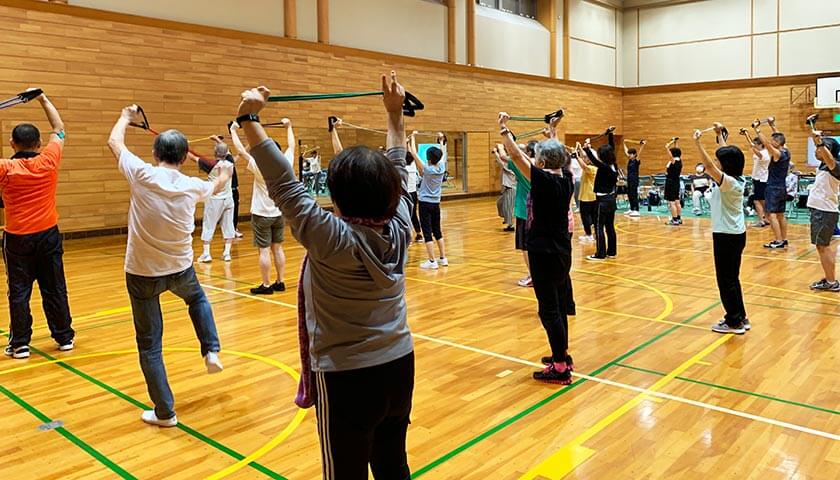
The Research Institute for Sport and Exercise Sciences was established in 2015 as the fourth research institute at SHOWA Medical University. The Institute continues to be the home of broad-based, multidisciplinary, fundamental and applied research regarding sports, health and rehabilitation sciences.
Our mission is:
- To advance research for sports, health and rehabilitation sciences via a multidisciplinary research approach,
- To translate innovative research outcomes into clinical practice and athletic activity,
- To nurture human resources to actively contribute to the development of the field of medicine through activities at the Institute.
Our areas of expertise are:
- Sports and performing arts medicine
- Biomechanics and exercise physiology
- Orthopedic surgery
- Athletic rehabilitation and physiotherapy
- Sports cardiology, cardiac rehabilitation and cardiometabolic health
- Sports dentistry
- Sports and clinical nutrition
- Sports pharmacy
Within the Institute, research activity and communication are organized by discipline-specific research groups and multidisciplinary thematic research exchanges. Membership is open to everyone at the university and each activity is led by a senior academic. Also, the research activity of the Institute is strongly linked to the clinical activity of the Outpatient Care Unit for sports and health at the SHOWA Medical University Fujigaoka Rehabilitation Hospital.
SHOWA Medical University Pharmacological Research Center
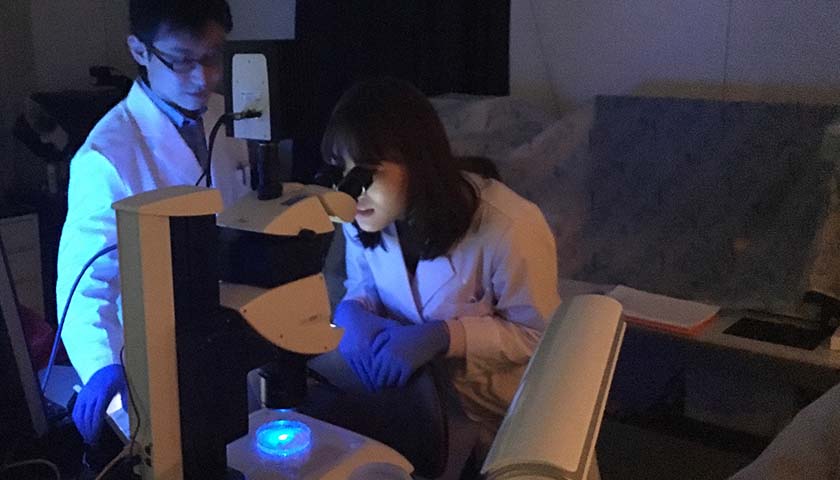
As a multidisciplinary research center at SHOWA Medical University, the Pharmacological Research Center was officially established on April 1, 2019, following preparations that started back in 2015.
This research center is spearheaded by faculty from the Department of Pharmacology, School of Medicine (Professors Yuji Kiuchi and Mayumi Tsuji), Department of Pharmacology, School of Dentistry (Professor Masamichi Takami), and Department of Pharmacology, Toxicology and Therapeutics, School of Pharmacy (Professor Koji Nobe: Division of Pharmacology and Satoshi Numazawa: Division of Toxicology). All members from different departments work together and collaborate in one laboratory to promote new pharmacological research.
There are about a hundred members, including faculty, graduate students, and undergraduate students. We conduct and plan joint research with the Department of Clinical Pharmacology, School of Medicine, SHOWA Medical University Hospitals, and many researchers in and outside SHOWA Medical University.
Based on our previous research themes, multidisciplinary research groups were formed, which bridge the basic science and clinical fields. These groups include the Nerve Group, the Bone/Calcium Group, the Lifestyle-Related Disease Group, the Cancer/Immunity Group, and the Drug Metabolism Group.
Following the philosophy of SHOWA Medical University, our center actively promotes research with the clear purpose of contributing to patients and society.
If you are interested in our efforts, please do not hesitate to contact us.
SHOWA Medical University The Mt. Fuji Institute for Nature and Biology

SHOWA Medical University Institute for Clinical Genetics and Genomics
Brain Function Analysis & Digital Medicine Research Institute, SHOWA Medical University
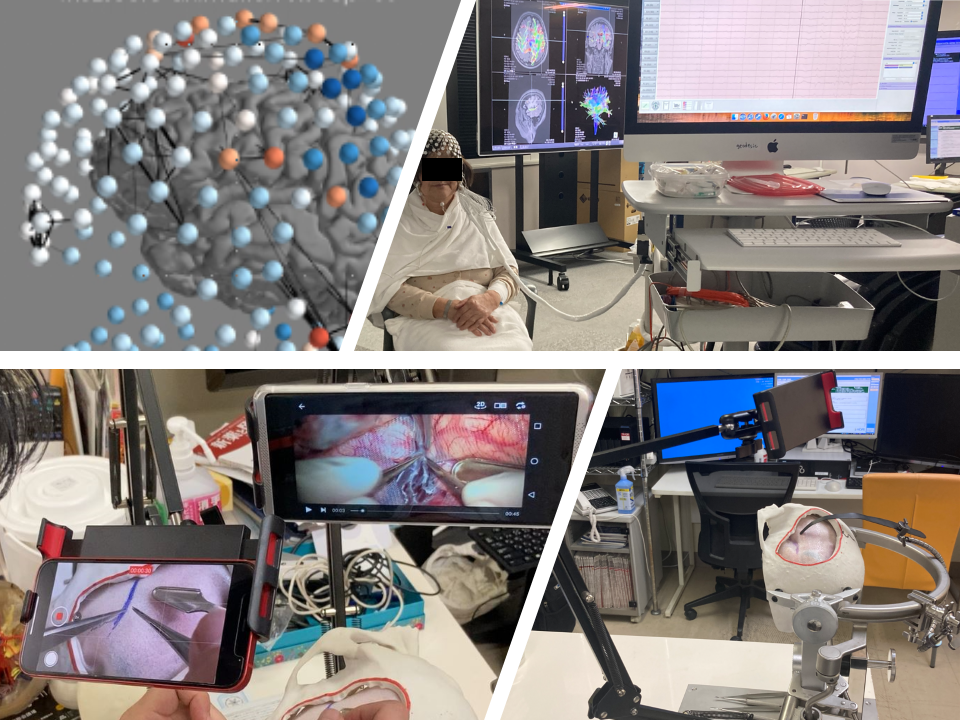
Innovative and clinically-directed Functional Brain Analysis and Digital Medical Research
Since brain dysfunction can occur even in the absence of obvious organic changes in the brain, there are many cases in which appropriate diagnosis and therapeutic intervention fail to be achieved. Epilepsy is a typical example. We have developed a special
EEG analysis technique and have shown that it is possible to accurately locate epileptic lesions from EEG data. Research is also beginning to apply this technology to the treatment of mild dementia and depression, etc.
These achievements are the result of the digitalization of EEG information. Today, a variety of medical information is being digitized, and the potential for new findings and inventions is increasing with the use of appropriate Dx and AI. Recently, it was shown that 3D images based on human brain physiology can be output in real time from 2D images by utilizing AI. Such technological development will be useful for medical education that requires 3D interpretation. It is also expected to lead to remote robotic surgery and real-time analysis technology of drug 3D structures.
The institute will develop "innovative and clinically-directed brain function analysis and digital medical research.
Brain Function Analysis & Digital Medicine Research Institute, SHOWA Medical University
SHOWA Medical University Building No.1, 3rd floor
1-5-8 Hatanodai Shinagawa-ku Tokyo 142-8555 Japan
TEL:03-3784-8639
Mail:yosukens@med.showa-u.ac.jp
Institute of Stress Management, SHOWA Medical University
Institute of Clinical Epidemiology (iCE)
IMD(Institute of Medical Design), SHOWA Medical University
Institute for Extracellular Matrix Research
Research Center for Biochemistry, Showa Medical University
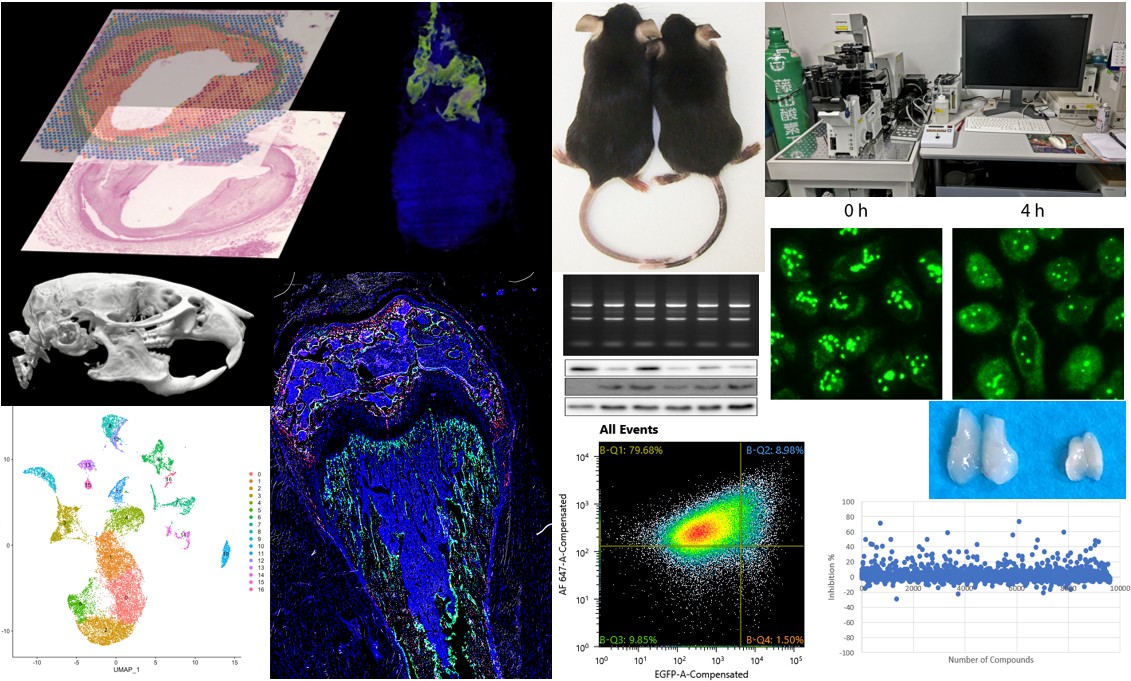
The Research Center for Biochemistry was established in May 2024 as a cross-faculty research center in Showa Medical University. Currently, the Department of Biochemistry in the School of Medicine and the Department of Biochemistry in the School of Dentistry are collaborating to promote biochemical research.
Our Vision/Mission
The Research Center for Biochemistry aims to elucidate the molecular mechanisms of human diseases. The Center is committed to fostering young leading researchers.